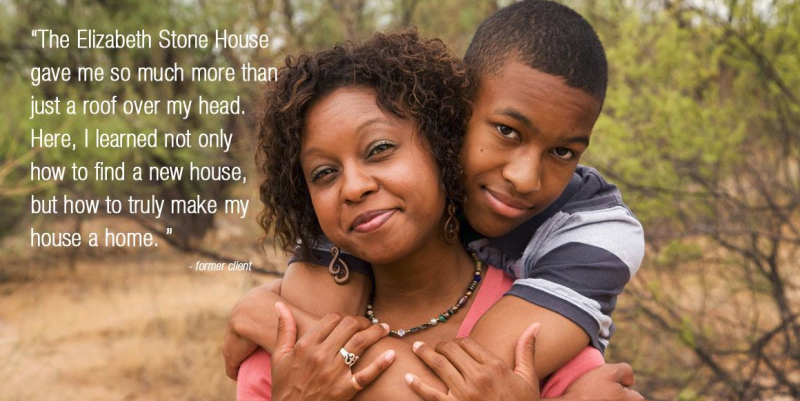For many of us, home is our sanctuary. But for those facing certain hardships, home and family are sources of turmoil.
July 19, 2017
Domestic violence, substance abuse, and mental illness require serious intervention. Victims can find themselves homeless, without the resources or support systems to help them find a way to safety.
In my life, I’ve been exceptionally fortunate, and I’m so grateful to be in a position to help organizations offering relief to those in need. I’m proud to announce this summer we’ve committed to donating $12,500 to The Elizabeth Stone House, a non-profit organization dedicated to the dignity and well-being of survivors of domestic violence in Massachusetts. And in a recent fundraiser, we helped the agency raise more than $50,000 toward building a new facility and expanding its services.
These funds for the new facility will help the agency’s services reach another 1,500 individuals in the community, providing more shelter, childcare, classes, and support groups to those who need it most.
The Elizabeth Stone House isn’t focused on finding shelter alone. On the long road to recovery, the organization provides a safe haven with a holistic view of the individuals in their care. It serves homeless and at-risk families and individuals in a goal-oriented, outcome-driven service environment by working to resolve the issues that made them homeless—domestic violence, substance abuse, and mental illness—so they can attain and maintain permanent housing, personal safety, and economic stability.
This is why I love giving to this organization. I’m in awe of the work it does for our most vulnerable populations. It’s helped thousands of individuals, families, and children during its 40-year mission. We’re committed to assisting The Elizabeth Stone House in expanding its footprint, and we believe wholeheartedly in its mission.

The Elizabeth Stone House aids victims and families far past the recovery stage.
The Elizabeth Stone House was founded in 1974 as a residential alternative to institutionalization for women with mental illness. Its founders believed there was a better way to aid these women, and so they created a center for recovery and safe harbor. The footprint quickly grew to include a domestic violence shelter—the first in the nation where women were encouraged to bring their children with them—and then a transitional housing facility in Roxbury, Massachusetts. Both are still in operation today, and the agency has grown to extend its services to the entire community.
To continue its positive momentum, The Elizabeth Stone House is working to secure funding to construct a new building. This new addition will give The Elizabeth Stone House an integrated supportive housing and community-based service complex that can offer expanded services to more than 2,000 people in need and community members each year.
I look forward to watching the agency grow, and I’m honored to support its ongoing efforts to address and alleviate the issues contributing to homelessness.
Learn more about The Elizabeth Stone House and all the good it does.
